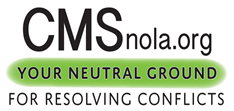Restorative practices and mediation are unequivocally linked.
Some see mediation as part of the continuum of restorative approaches. It is no accident that most community mediation centers provide services in restorative practices.
Within the framework of restorative practices are Restorative Justice, an approach used when a harm has been done, and Restorative Discipline, the term when practices are used in schools. Restorative Circles, Victim Offender Conferencing, and Re-Entry Conferencing (after incarceration or suspension and expulsion) are a few of the techniques used in both settings.
Restorative Circles are also termed Peace Building Circles and Healing Circles depending on their purpose. They may be used for decision-making, conflict resolution, community building, and wherever a safe environment is required so that the voices of the people impacted can be heard.
Some benefits of a restorative approach include:
all stakeholders have a voice in the process
participants are encouraged to become responsible
accountable without shame
healing takes place
communities are strengthened.
Collaborations
Listed below are a few agencies and groups for whom we have provided training or services in Restorative Practices.
New Orleans Police Department – restorative circles and facilitation to enhance the relationship between community and officers in District 5; between officers, community and students in District 1. [per a grant from NAFCM /JAMS].
Louisiana Board of Elementary and Secondary Education – training of teachers and staff in restorative practices for Region II Positive Behavior Intervention and Support (PBIS) Consortia
Conservation Corps of Greater New Orleans – training of associated leadership and organizations in restorative practices.
Restorative Practice Trainings are available to groups only. Individuals may be included when group trainings are scheduled.



